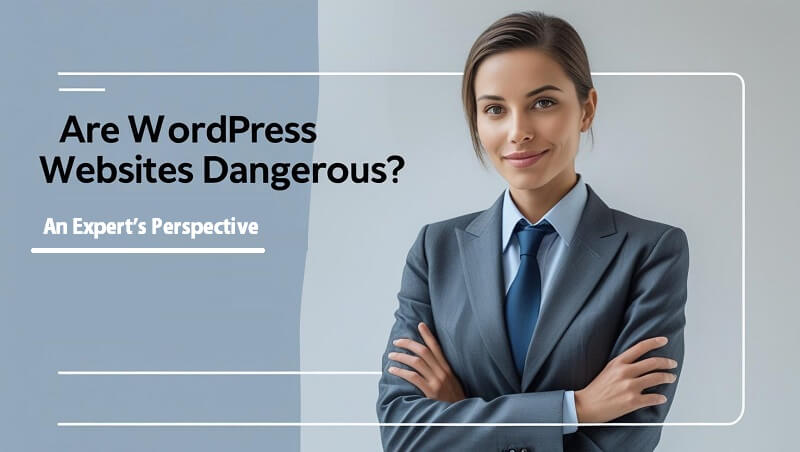WordPress powers more than 40% of all websites on the internet. From blogs to e-commerce stores, it’s a popular choice thanks to its flexibility, open-source nature, and vast library of themes and plugins. Yet, many businesses and individuals hesitate to use WordPress, fearing it’s insecure or unstable. But is that true?
To explore this, we spoke with Yev Yanovich, director of the French custom web agency Incrona ( https://incrona.com), which operates in both France and Spain.
“A lot of people tell me they think WordPress is dangerous,” Yev says. “But most of the time, they’ve had bad experiences due to how it was used, not the tool itself.”

Misconception #1: WordPress is inherently insecure
According to Yev, the idea that WordPress is dangerous often comes from seeing hacked or malfunctioning websites. However, this is usually the result of poor practices, such as using free, unverified plugins, failing to update core files, or ignoring basic security protocols.
“The real issue isn’t WordPress itself,” Yev explains. “It’s when people build sites by stacking dozens of plugins from unknown developers without checking their quality or updates. That’s like building a house on sand.”
At Incrona, WordPress is still used as a foundation for many client websites, but with a very different philosophy. The agency builds custom-made themes and features without relying on external plugins. Every element is designed and coded in-house, ensuring full control over security, performance, and compatibility.
What makes a WordPress site vulnerable?
Here are the most common reasons why WordPress sites get hacked or break down:
- Too many third-party plugins, especially outdated ones
- Lack of regular updates to WordPress core, themes, and plugins
- Weak passwords and poor user permission settings
- Insecure hosting environments
- No security monitoring or firewalls
Yev stresses that these are not flaws in WordPress as a platform, but symptoms of poor implementation.
How Incrona uses WordPress — safely and efficiently
Incrona’s approach is based on minimalism, custom development, and security-by-design.
“We use WordPress like a framework,” Yev says. “We don’t rely on external tools. We create what our clients need — clean, tailored, responsive websites.”
By avoiding the plugin overload that plagues many WordPress sites, Incrona ensures better performance, stability, and scalability. Instead of downloading sliders, form builders, or SEO tools, the team develops lightweight alternatives specific to each client’s needs.
This also makes ongoing maintenance easier and safer. While updates to WordPress can occasionally cause compatibility issues, a skilled developer can quickly spot and fix them.
“That’s our job — to anticipate issues before they happen, and to solve them fast when they do,” says Yev.
Should you still consider WordPress for your business?
If you’re a small to medium-sized business looking for flexibility and cost-efficiency, yes — WordPress remains an excellent choice. But it matters how it’s implemented. Hiring the right agency — one that understands both technical foundations and user experience design — is key.
Incrona combines WordPress with a bespoke approach:
- Fully custom themes (no off-the-shelf templates)
- Zero reliance on third-party plugins
- Mobile-first, responsive design
- SEO and performance optimization
- Ongoing support and maintenance
Conclusion
WordPress is not dangerous — misuse is. When built professionally, it can be a powerful, secure, and scalable platform for any web project. Agencies like Incrona show that the key to success with WordPress lies in using it wisely, tailoring it to each project, and respecting basic web development principles. “Just like a car, WordPress is only as safe as the person who builds and maintains it,” Yev concludes. “In the right hands, it’s an amazing tool.”





